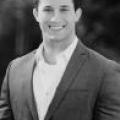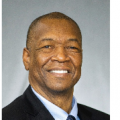City of Everett
Not in City of Everett? Find your guide.
Return Ballots By November 2
Welcome to the Fuse Progressive Voters Guide to the 2021 general election! The Progressive Voters Guide compiles the information that allows you to make informed decisions about the races on your ballot, based on your values. You can learn about our partners and decision-making process here. Please share this guide with your friends and family!
Statewide Ballot Measures
Because of a Tim Eyman initiative, the Legislature is required to submit any bill it passes that closes tax loopholes or raises revenue to a nonbinding advisory vote. The Legislature had a historically productive 2021 session, resulting in several advisory votes appearing on the ballot. We hope the Legislature will change the law to remove these meaningless measures in the future.
This spring, lawmakers passed Engrossed Substitute House Bill 1477 to expand the state’s crisis response system to include a new hotline dealing exclusively with mental health emergencies.
Sponsored by Democratic legislators, the law will divert some calls away from 911 so that Washingtonians can get more specialized crisis responses. In addition, law enforcement officers no longer need to take on responsibilities associated with social workers. This will be funded by a tax of 30 cents a month on most phone services in October 2021 until a bump to 75 cents a month starting in July 2024. All revenue generated by the tax will go to crisis line-related expenses, including expanding hotline personnel during the community mental health crisis associated with the pandemic.
Vote “Maintained” on State Advisory Vote 36.
This spring, lawmakers passed Engrossed Substitute House Bill 1477 to expand the state’s crisis response system to include a new hotline dealing exclusively with mental health emergencies.
Sponsored by Democratic legislators, the law will divert some calls away from 911 so that Washingtonians can get more specialized crisis responses. In addition, law enforcement officers no longer need to take on responsibilities associated with social workers. This will be funded by a tax of 30 cents a month on most phone services in October 2021 until a bump to 75 cents a month starting in July 2024. All revenue generated by the tax will go to crisis line-related expenses, including expanding hotline personnel during the community mental health crisis associated with the pandemic.
Vote “Maintained” on State Advisory Vote 36.
Washingtonians deserve an economy that works for us all. An essential part of that is a balanced tax code where everyone pays their share. Yet, Washington boasts the most upside-down system in the nation, where the state’s lowest-income earners pay 17% of their income in taxes while the wealthiest few pay just 3% of their income.
This legislative session, Democratic lawmakers wrote and passed Engrossed Substitute Senate Bill 5096, which created a 7% capital gains tax on the sale of assets like stocks valued above $250,000. The tax is estimated to raise about $415 million primarily for child care and early learning - both services that became clearly essential to Washingtonians during the coronavirus pandemic.
We know that good public schools, beautiful parks, and strong social services make Washington a great place to live. This long-overdue capital gains tax will go towards making sure that all Washingtonians pay their share in taxes and have the opportunity to thrive.
Vote "Maintained" on State Advisory Vote 37.
Washingtonians deserve an economy that works for us all. An essential part of that is a balanced tax code where everyone pays their share. Yet, Washington boasts the most upside-down system in the nation, where the state’s lowest-income earners pay 17% of their income in taxes while the wealthiest few pay just 3% of their income.
This legislative session, Democratic lawmakers wrote and passed Engrossed Substitute Senate Bill 5096, which created a 7% capital gains tax on the sale of assets like stocks valued above $250,000. The tax is estimated to raise about $415 million primarily for child care and early learning - both services that became clearly essential to Washingtonians during the coronavirus pandemic.
We know that good public schools, beautiful parks, and strong social services make Washington a great place to live. This long-overdue capital gains tax will go towards making sure that all Washingtonians pay their share in taxes and have the opportunity to thrive.
Vote "Maintained" on State Advisory Vote 37.
In the most recent legislative session, lawmakers passed Second Substitute Senate Bill 5315, which creates a 2% tax on certain insurance premiums. In effect, the law would close a tax loophole for corporations with their own insurance policies, known as captive insurers, so that all insurance companies pay premiums taxes. It is estimated to generate around $53 million over the next decade.
SB 5315 had bipartisan sponsorship and was passed nearly unanimously with only one vote of opposition between both houses. The legislation was requested by Democratic Washington Insurance Commissioner Mike Kreidler, who wants to make sure that all insurance companies pay their share of taxes.
Ensuring big corporations pay their share is an important step toward balancing our state's tax code. Vote “Maintained” on State Advisory Vote 38.
In the most recent legislative session, lawmakers passed Second Substitute Senate Bill 5315, which creates a 2% tax on certain insurance premiums. In effect, the law would close a tax loophole for corporations with their own insurance policies, known as captive insurers, so that all insurance companies pay premiums taxes. It is estimated to generate around $53 million over the next decade.
SB 5315 had bipartisan sponsorship and was passed nearly unanimously with only one vote of opposition between both houses. The legislation was requested by Democratic Washington Insurance Commissioner Mike Kreidler, who wants to make sure that all insurance companies pay their share of taxes.
Ensuring big corporations pay their share is an important step toward balancing our state's tax code. Vote “Maintained” on State Advisory Vote 38.
County Council District Races
Snohomish County, District 4
Jared Mead is running to retain his seat on the Snohomish County Council in District 4. He previously served in the state Legislature and was appointed to the council in 2020 after Terry Ryan resigned, winning his election in 2020 for the final year of the term. Last year, Mead chaired the Regional Law & Justice and Human Services committee on the council.
Mead is a strong progressive who has worked to prohibit discrimination, fight the climate crisis, and secure an energy-independent state for future generations. His campaign priorities include reducing traffic and pollution through transit-oriented development and protecting the county's urban growth areas. In this race, he is supported by many local progressive leaders and our partner organizations.
Mead faces a challenge from Republican Brenda Carrington. She has a business background in construction and landscaping and lost to Mead in last year's election. Carrington opposes new funding for essential services and disagrees with efforts to redirect some funding to community safety and prevention.
Mead is the clear choice for Snohomish County Council in District 4.
Jared Mead is running to retain his seat on the Snohomish County Council in District 4. He previously served in the state Legislature and was appointed to the council in 2020 after Terry Ryan resigned, winning his election in 2020 for the final year of the term. Last year, Mead chaired the Regional Law & Justice and Human Services committee on the council.
Mead is a strong progressive who has worked to prohibit discrimination, fight the climate crisis, and secure an energy-independent state for future generations. His campaign priorities include reducing traffic and pollution through transit-oriented development and protecting the county's urban growth areas. In this race, he is supported by many local progressive leaders and our partner organizations.
Mead faces a challenge from Republican Brenda Carrington. She has a business background in construction and landscaping and lost to Mead in last year's election. Carrington opposes new funding for essential services and disagrees with efforts to redirect some funding to community safety and prevention.
Mead is the clear choice for Snohomish County Council in District 4.
Snohomish County, District 5
Brandy Donaghy is a community organizer and Navy veteran who is challenging incumbent Councilmember Sam Low for Snohomish County Council in District 5. Donaghy serves on the board of directors for the Communities of Color Coalition and regularly volunteers to provide emergency services and disaster relief to the Snohomish community.
Donaghy has spent her professional life advocating for a high quality of life for all Snohomish residents. She is a strong progressive whose campaign priorities include COVID-19 recovery that incorporates community support, housing security, justice reform, and maintaining green space. She is endorsed by many of our partner organizations and a number of progressive elected leaders in this race.
Low is an outspoken Republican on the council who voted in June against $4 per hour hazard pay for grocery store workers on the front lines of the pandemic. Earlier this spring, he badgered and voted against the appointment of a young woman of color to the Regional Law and Justice Council because he disagreed with some of her social media posts.
Donaghy would bring a much-needed progressive perspective to the council and is the obvious choice for Snohomish County Council in District 5.
Brandy Donaghy is a community organizer and Navy veteran who is challenging incumbent Councilmember Sam Low for Snohomish County Council in District 5. Donaghy serves on the board of directors for the Communities of Color Coalition and regularly volunteers to provide emergency services and disaster relief to the Snohomish community.
Donaghy has spent her professional life advocating for a high quality of life for all Snohomish residents. She is a strong progressive whose campaign priorities include COVID-19 recovery that incorporates community support, housing security, justice reform, and maintaining green space. She is endorsed by many of our partner organizations and a number of progressive elected leaders in this race.
Low is an outspoken Republican on the council who voted in June against $4 per hour hazard pay for grocery store workers on the front lines of the pandemic. Earlier this spring, he badgered and voted against the appointment of a young woman of color to the Regional Law and Justice Council because he disagreed with some of her social media posts.
Donaghy would bring a much-needed progressive perspective to the council and is the obvious choice for Snohomish County Council in District 5.
Port of Everett
Incumbent David Simpson is running to retain his seat as Commissioner of District 1 for the Port of Everett, which he was elected to in 2019 to fill an unexpired term. Simpson also works as a member of the Committee for Housing and Community Development. He has an extensive record in public service, having served as an Everett City Council member, a Washington state representative for the 38th Legislative District, and a member of the Snohomish County Charter Review Commission representing county council District 2. Simpson has also worked in the aviation industry as a manufacturing engineer and aviation mechanic.
Simpson's campaign platform prioritizes economic development, protecting the environment, and living wages. He has a slate of projects underway, including the Waterfront Place Central Development, that he believes will help Everett and the port recover from the community and economic impact of the pandemic.
Simpson faces a challenge from Scott Murphy, an Everett City Council member since 2013. Murphy strongly emphasizes his business background and has previously boasted of expanding Everett’s police budget during his time as a council member despite public support to reallocate some of those funds to community alternatives. If elected, he would push the port in a more politically conservative direction.
Snohomish County has benefitted from Simpson's commitment to bringing community-minded leadership to the port. David Simpson is the clear choice for Port of Everett Commissioner in District 1.
Incumbent David Simpson is running to retain his seat as Commissioner of District 1 for the Port of Everett, which he was elected to in 2019 to fill an unexpired term. Simpson also works as a member of the Committee for Housing and Community Development. He has an extensive record in public service, having served as an Everett City Council member, a Washington state representative for the 38th Legislative District, and a member of the Snohomish County Charter Review Commission representing county council District 2. Simpson has also worked in the aviation industry as a manufacturing engineer and aviation mechanic.
Simpson's campaign platform prioritizes economic development, protecting the environment, and living wages. He has a slate of projects underway, including the Waterfront Place Central Development, that he believes will help Everett and the port recover from the community and economic impact of the pandemic.
Simpson faces a challenge from Scott Murphy, an Everett City Council member since 2013. Murphy strongly emphasizes his business background and has previously boasted of expanding Everett’s police budget during his time as a council member despite public support to reallocate some of those funds to community alternatives. If elected, he would push the port in a more politically conservative direction.
Snohomish County has benefitted from Simpson's commitment to bringing community-minded leadership to the port. David Simpson is the clear choice for Port of Everett Commissioner in District 1.
City Races
Everett Mayor
Incumbent Cassie Franklin was the first woman ever to be elected mayor of Everett. Before becoming mayor, Franklin was an Everett City Council member and served in a number of organizations and programs addressing homelessness.
Her tenure as mayor, which began in 2017, came at a difficult moment in the city's financial history. Washington cities are required by law to produce a balanced budget. With a deficit of $18 million for the city, up from $15 million inherited before her term due to pandemic-related causes, Franklin and the city council cut costs to balance the budget. Their budget closed service locations like the Carl Gipson Senior Center and the Forest Park Swim Center, reduced library hours, and eliminated city-sponsored events like fireworks, the animal farm, and flower festival, along with laying off or voluntary separating from over 130 employees. Disappointingly, despite calls by Black activists to reduce or move funds from the police department budget into more community services, the police budget was not cut like most other departments. Franklin states that the department's body camera program and training efforts are meeting the changes demanded by activists.
Budget aside, Franklin has worked hard in the pandemic to administer pandemic relief funds and issued a stay-home directive in the early days of the COVID crisis.
Franklin's opponent is Steve Oss, president of the Everett Transit Union. Oss does not have a website or detailed policy proposals as of mid-October. He states in a local interview that he believes businesses need support and the city's deficit needs to be addressed.
While Franklin is fairly moderate, her endorsements on both the conservative and progressive ends of the spectrum represent local faith in her second run, and she is the only viable choice in this race.
Incumbent Cassie Franklin was the first woman ever to be elected mayor of Everett. Before becoming mayor, Franklin was an Everett City Council member and served in a number of organizations and programs addressing homelessness.
Her tenure as mayor, which began in 2017, came at a difficult moment in the city's financial history. Washington cities are required by law to produce a balanced budget. With a deficit of $18 million for the city, up from $15 million inherited before her term due to pandemic-related causes, Franklin and the city council cut costs to balance the budget. Their budget closed service locations like the Carl Gipson Senior Center and the Forest Park Swim Center, reduced library hours, and eliminated city-sponsored events like fireworks, the animal farm, and flower festival, along with laying off or voluntary separating from over 130 employees. Disappointingly, despite calls by Black activists to reduce or move funds from the police department budget into more community services, the police budget was not cut like most other departments. Franklin states that the department's body camera program and training efforts are meeting the changes demanded by activists.
Budget aside, Franklin has worked hard in the pandemic to administer pandemic relief funds and issued a stay-home directive in the early days of the COVID crisis.
Franklin's opponent is Steve Oss, president of the Everett Transit Union. Oss does not have a website or detailed policy proposals as of mid-October. He states in a local interview that he believes businesses need support and the city's deficit needs to be addressed.
While Franklin is fairly moderate, her endorsements on both the conservative and progressive ends of the spectrum represent local faith in her second run, and she is the only viable choice in this race.
City of Everett, District #1
There are two good candidates running for Everett City Council, District 1: Mary Fosse and Paul Roberts. We lean towards Fosse in this race because of her strong community experience, forward-looking platform, and support from our Progressive Voters Guide partner organizations.
Mary Fosse works as a legislative aide to state Rep. Emily Wicks and is on the Everett Public Schools Fiscal Advisory Council. She is a former member of the Everett Districting Commission and has served as chair of the Delta Neighborhood Association.
Fosse has accomplished much in the community and beyond, especially for environmental causes. She led neighbor volunteers in an education campaign about toxic soil from the Asparco copper smelter, and was awarded $5 million from the Department of Ecology for the environmental justice cleanup of the Delta neighborhood. She was also awarded as Conservation Leader of the Year in 2020 from the Snohomish Conservation District for her work in promoting organic gardening and green pest management.
Fosse wants to harness her environmental experience into a campaign that centers the wellness and quality of life of Everett residents. Her priorities include working on equitable COVID recovery, pushing the city forward on sustainability, and leading on housing solutions.
We lean towards Fosse for Everett City Council, District 1.
Mary Fosse works as a legislative aide to state Rep. Emily Wicks and is on the Everett Public Schools Fiscal Advisory Council. She is a former member of the Everett Districting Commission and has served as chair of the Delta Neighborhood Association.
Fosse has accomplished much in the community and beyond, especially for environmental causes. She led neighbor volunteers in an education campaign about toxic soil from the Asparco copper smelter, and was awarded $5 million from the Department of Ecology for the environmental justice cleanup of the Delta neighborhood. She was also awarded as Conservation Leader of the Year in 2020 from the Snohomish Conservation District for her work in promoting organic gardening and green pest management.
Fosse wants to harness her environmental experience into a campaign that centers the wellness and quality of life of Everett residents. Her priorities include working on equitable COVID recovery, pushing the city forward on sustainability, and leading on housing solutions.
We lean towards Fosse for Everett City Council, District 1.
Paul Roberts was first elected to the council in 2006 and is now running for his fifth term in office. Because the new District 1 will contain so many of the city's water resources, we believe it's important to elect a candidate from this district who will focus on the environment and conservation.
Roberts has had a long career in public service. He currently serves as chair of the Puget Sound Clean Air Agency Board and vice chair on the board of Sound Transit. He also works with the Association of Washington Cities on climate change and sustainability. It won't surprise voters that one of Roberts' goals if re-elected will be reducing the city's greenhouse gas emissions and supporting green economic development. He also wants see more moderate- and low-income housing to alleviate the crisis in both homelessness and the overall lack of affordable options. Roberts joined fellow Everett City Council member Liz Vogeli as the two council members who were in favor of supportive housing for students experiencing homelessness and their families, though he later supported the no-sit, no-lie policy that criminalized homelessness in a 10-block area in north Everett.
A note for Everett voters: this is the first election using the new redistricted map adopted last year. District 1 includes northwest Everett, all of the Delta and Riverside neighborhoods, the northeast half of Bayside, and a small area of the westernmost part of Port Gardner. It also includes the port, Navy base, Snohomish River, and Port Gardner Bay.
Paul Roberts was first elected to the council in 2006 and is now running for his fifth term in office. Because the new District 1 will contain so many of the city's water resources, we believe it's important to elect a candidate from this district who will focus on the environment and conservation.
Roberts has had a long career in public service. He currently serves as chair of the Puget Sound Clean Air Agency Board and vice chair on the board of Sound Transit. He also works with the Association of Washington Cities on climate change and sustainability. It won't surprise voters that one of Roberts' goals if re-elected will be reducing the city's greenhouse gas emissions and supporting green economic development. He also wants see more moderate- and low-income housing to alleviate the crisis in both homelessness and the overall lack of affordable options. Roberts joined fellow Everett City Council member Liz Vogeli as the two council members who were in favor of supportive housing for students experiencing homelessness and their families, though he later supported the no-sit, no-lie policy that criminalized homelessness in a 10-block area in north Everett.
A note for Everett voters: this is the first election using the new redistricted map adopted last year. District 1 includes northwest Everett, all of the Delta and Riverside neighborhoods, the northeast half of Bayside, and a small area of the westernmost part of Port Gardner. It also includes the port, Navy base, Snohomish River, and Port Gardner Bay.
City of Everett, District #2
There are two good candidates running for Everett City Council in District 2: Paula Denise Rhyne and Gregory Michael Lineberry. We lean towards Rhyne for her progressive agenda and her support from our partner organizations.
Paula Rhyne is currently working as a legislative aide for Snohomish County Council member Megan Dunn. She has also worked on the King County Council for Rod Dembowski and then-council member Bob Ferguson. Her campaign is driven by a desire to pilot the city towards more affordable housing, stronger environmental protections, and an economic recovery that leaves no one behind.
Rhyne says that she will focus on supporting business owners through this phase of the pandemic, including preparing for more remote work and online shopping. She states that when the eviction moratorium ends, the city will need greater access to affordable and middle-income housing, and wants the council to incentivize the development of more moderate multi-family housing developments. She is a staunch supporter of investing in the community before punitive law enforcement measures. On one hand, that means providing police officers with more support staff to respond to nonviolent calls. That also means preventing crime, including nonviolent crimes caused by poverty, before they happen. Education and a focus on housing those without homes are two other core components of her campaign. Rhyne is committed to instituting equity-driven decision making and has centered her campaign around working together to improve the city.
Voters in District 2 have two good choices when it comes to picking a council member this year. We lean towards Rhyne for her progressive agenda and her support from our partners.
Paula Rhyne is currently working as a legislative aide for Snohomish County Council member Megan Dunn. She has also worked on the King County Council for Rod Dembowski and then-council member Bob Ferguson. Her campaign is driven by a desire to pilot the city towards more affordable housing, stronger environmental protections, and an economic recovery that leaves no one behind.
Rhyne says that she will focus on supporting business owners through this phase of the pandemic, including preparing for more remote work and online shopping. She states that when the eviction moratorium ends, the city will need greater access to affordable and middle-income housing, and wants the council to incentivize the development of more moderate multi-family housing developments. She is a staunch supporter of investing in the community before punitive law enforcement measures. On one hand, that means providing police officers with more support staff to respond to nonviolent calls. That also means preventing crime, including nonviolent crimes caused by poverty, before they happen. Education and a focus on housing those without homes are two other core components of her campaign. Rhyne is committed to instituting equity-driven decision making and has centered her campaign around working together to improve the city.
Voters in District 2 have two good choices when it comes to picking a council member this year. We lean towards Rhyne for her progressive agenda and her support from our partners.
Greg Lineberry is an Army veteran and a captain in the Everett Police Department. He is a longtime member of the Everett Rotary Club and serves on the board for Domestic Violence Services of Snohomish County. He is running to increase affordable housing and help small businesses recover from the pandemic. Like Rhyne, Lineberry also believes that the time is now to adapt the methods of law enforcement to improve safety for officers and for the community. Some of the changes he's supported in this regard include eliminating the "hog-tie" restraint, increasing police academy training hours, and limiting police vehicle pursuits. If elected, he will retire from the police department before joining the council.
Lineberry's willingness to reform public safety has earned him a solid roster of community support, including from local Democratic groups, four Everett council members, and several state House representatives and senators.
Greg Lineberry is an Army veteran and a captain in the Everett Police Department. He is a longtime member of the Everett Rotary Club and serves on the board for Domestic Violence Services of Snohomish County. He is running to increase affordable housing and help small businesses recover from the pandemic. Like Rhyne, Lineberry also believes that the time is now to adapt the methods of law enforcement to improve safety for officers and for the community. Some of the changes he's supported in this regard include eliminating the "hog-tie" restraint, increasing police academy training hours, and limiting police vehicle pursuits. If elected, he will retire from the police department before joining the council.
Lineberry's willingness to reform public safety has earned him a solid roster of community support, including from local Democratic groups, four Everett council members, and several state House representatives and senators.
City of Everett, District #3
Retired firefighter Don Schwab is running for Everett City Council in District 3. He worked as a firefighter for more than three decades and has served on various boards in the community and at the state level, including as a board member of the Snohomish County Red Cross and on Washington's Council of Fire Fighters. He currently works for Snohomish County Treasurer Brian Sullivan and as an associate faculty member at Everett Community College.
Schwab states that the police and fire departments should be fully staffed and funded. He notes that Everett has one of the highest rates of COVID infections in the state, and supports expanding paid sick leave and family leave. He also supports fast-tracking the light rail system to stimulate economic development downtown and along Evergreen Way, promoting housing density, and improving citywide energy efficiency among other considerations.
Schwab is running against Lacey Sauvageau, a 911 dispatcher for Snohomish County. She previously ran as a Democrat against now Rep. Emily Wicks in the 38th Legislative District. Her campaign website is not accessible as of mid-October and detailed policy proposals are not available. Sauvageau's official voters' guide statement outlines her priorities as securing affordable housing, empowering the police, eliminating "wasteful spending," and supporting mental health for people experiencing homelessness.
Given that the city cut nearly every department aside from law enforcement in the last few months, we would like to see Schwab's policies on law enforcement evolve into a model that prioritizes investing more into human services. Nevertheless, Schwab is the best candidate in this race.
A note for Everett voters: this is the first election using the new redistricted map adopted last year. District 3 includes all of Boulevard Bluffs, Harborview Seahurst Glenhaven, View Ridge-Madison, Evergreen, and the southernmost tip of South Forest Park.
Retired firefighter Don Schwab is running for Everett City Council in District 3. He worked as a firefighter for more than three decades and has served on various boards in the community and at the state level, including as a board member of the Snohomish County Red Cross and on Washington's Council of Fire Fighters. He currently works for Snohomish County Treasurer Brian Sullivan and as an associate faculty member at Everett Community College.
Schwab states that the police and fire departments should be fully staffed and funded. He notes that Everett has one of the highest rates of COVID infections in the state, and supports expanding paid sick leave and family leave. He also supports fast-tracking the light rail system to stimulate economic development downtown and along Evergreen Way, promoting housing density, and improving citywide energy efficiency among other considerations.
Schwab is running against Lacey Sauvageau, a 911 dispatcher for Snohomish County. She previously ran as a Democrat against now Rep. Emily Wicks in the 38th Legislative District. Her campaign website is not accessible as of mid-October and detailed policy proposals are not available. Sauvageau's official voters' guide statement outlines her priorities as securing affordable housing, empowering the police, eliminating "wasteful spending," and supporting mental health for people experiencing homelessness.
Given that the city cut nearly every department aside from law enforcement in the last few months, we would like to see Schwab's policies on law enforcement evolve into a model that prioritizes investing more into human services. Nevertheless, Schwab is the best candidate in this race.
A note for Everett voters: this is the first election using the new redistricted map adopted last year. District 3 includes all of Boulevard Bluffs, Harborview Seahurst Glenhaven, View Ridge-Madison, Evergreen, and the southernmost tip of South Forest Park.
City of Everett, District #4
Incumbent Liz Vogeli has been a dedicated and passionate advocate for the residents of Everett since her election to the council in 2018. She is one of the most progressive members of the council, and sometimes the sole vote on important proposals. She was the lone no-vote for the "no-sit, no-lie" ordinance that passed this February, which criminalizes sitting or laying on the sidewalk in a roughly 10-block area, a policy which national legal advocacy organizations called "cruel and unusual punishment" for those who will be fined or jailed because they can't afford shelter. She has also voted to provide supportive housing for homeless students.
If re-elected, Vogeli aims to incentivize more affordable and climate-friendly housing, support much-needed access to the library, advocate for de-escalation and mental health experts to work alongside law enforcement, and push for more sustainable transit. She enjoys strong support from a wide breadth of progressive advocacy organizations, including health care workers, environmental organizations, and labor unions.
Challenging Vogeli is Tommie Rubatino, a teacher and pastor. His top campaign priorities are addressing homelessness, neighborhood safety, and supporting businesses. However, as of mid-October he does not have detailed policy proposals available on his website, and there is nothing that particularly points to a progressive agenda. His endorsements by Republican elected officials imply that Rubatino would lead from a more conservative angle if elected.
Vogeli has served the people of Everett well with her progressive vision for the city. We strongly recommend a vote to re-elect Liz Vogeli for Everett City Council in District 4.
A note for Everett voters: this is the first election using the new redistricted map adopted last year. District 4 includes the neighborhoods of Westmont and Holly.
Incumbent Liz Vogeli has been a dedicated and passionate advocate for the residents of Everett since her election to the council in 2018. She is one of the most progressive members of the council, and sometimes the sole vote on important proposals. She was the lone no-vote for the "no-sit, no-lie" ordinance that passed this February, which criminalizes sitting or laying on the sidewalk in a roughly 10-block area, a policy which national legal advocacy organizations called "cruel and unusual punishment" for those who will be fined or jailed because they can't afford shelter. She has also voted to provide supportive housing for homeless students.
If re-elected, Vogeli aims to incentivize more affordable and climate-friendly housing, support much-needed access to the library, advocate for de-escalation and mental health experts to work alongside law enforcement, and push for more sustainable transit. She enjoys strong support from a wide breadth of progressive advocacy organizations, including health care workers, environmental organizations, and labor unions.
Challenging Vogeli is Tommie Rubatino, a teacher and pastor. His top campaign priorities are addressing homelessness, neighborhood safety, and supporting businesses. However, as of mid-October he does not have detailed policy proposals available on his website, and there is nothing that particularly points to a progressive agenda. His endorsements by Republican elected officials imply that Rubatino would lead from a more conservative angle if elected.
Vogeli has served the people of Everett well with her progressive vision for the city. We strongly recommend a vote to re-elect Liz Vogeli for Everett City Council in District 4.
A note for Everett voters: this is the first election using the new redistricted map adopted last year. District 4 includes the neighborhoods of Westmont and Holly.
City of Everett, District #5
Demi Chatters is an education advocate who has spent over a decade working to bring inclusive and quality education to public school students. She is deeply embedded in the community as a member of the Snohomish Human Rights Commission and Evergreen Middle School Equity Team. She also serves on the board for Seattle Suns, a youth sports organization that focuses on youth experiencing poverty, and is a committee member for LGBTQ organization NOLOSE.
If elected, Chatters wants to advocate for an equitable and sustainable recovery from COVID that benefits everyone in the city. To that end, she will prioritize infrastructure investments, work on sustainable business development, and champion workers' rights through fair collective bargaining. She notes that the increasing struggle of residents to secure housing should be met with additional services in the form of mental health care, encouraging more housing options, and moving the unsheltered towards more housing options. Specifically for District 5, Chatters wants to see the completion of the Silver Lake trail, reinforced road stability, and opportunities for parks within neighborhoods.
Chatters is running against Ben Zarlingo, a communications technology consultant and a leadership member of the Silver Lake Neighborhood Association. He intends to address the city's enormous $16.5 million deficit with a somewhat inconsistent strategy of avoiding cuts to services and revenue increases through taxes while leaning more on welcoming new businesses. Zarlingo's other priorities include pairing housing and mental health treatment for people experiencing homelessness and supporting family services like the Baker Heights project.
Demi Chatters has the support of several local progressive officials and is committed to building an Everett that supports working families. She is by far the best choice in this race.
A note for Everett voters: this is the first election using the new redistricted map adopted last year. District 5 includes parts of the neighborhoods of Twin Creeks, Westmont, Cascade View, and Pinehurst Beverly Park, as well as all of Silver Creek.
Demi Chatters is an education advocate who has spent over a decade working to bring inclusive and quality education to public school students. She is deeply embedded in the community as a member of the Snohomish Human Rights Commission and Evergreen Middle School Equity Team. She also serves on the board for Seattle Suns, a youth sports organization that focuses on youth experiencing poverty, and is a committee member for LGBTQ organization NOLOSE.
If elected, Chatters wants to advocate for an equitable and sustainable recovery from COVID that benefits everyone in the city. To that end, she will prioritize infrastructure investments, work on sustainable business development, and champion workers' rights through fair collective bargaining. She notes that the increasing struggle of residents to secure housing should be met with additional services in the form of mental health care, encouraging more housing options, and moving the unsheltered towards more housing options. Specifically for District 5, Chatters wants to see the completion of the Silver Lake trail, reinforced road stability, and opportunities for parks within neighborhoods.
Chatters is running against Ben Zarlingo, a communications technology consultant and a leadership member of the Silver Lake Neighborhood Association. He intends to address the city's enormous $16.5 million deficit with a somewhat inconsistent strategy of avoiding cuts to services and revenue increases through taxes while leaning more on welcoming new businesses. Zarlingo's other priorities include pairing housing and mental health treatment for people experiencing homelessness and supporting family services like the Baker Heights project.
Demi Chatters has the support of several local progressive officials and is committed to building an Everett that supports working families. She is by far the best choice in this race.
A note for Everett voters: this is the first election using the new redistricted map adopted last year. District 5 includes parts of the neighborhoods of Twin Creeks, Westmont, Cascade View, and Pinehurst Beverly Park, as well as all of Silver Creek.











Because of a Tim Eyman initiative, the Legislature is required to submit any bill it passes that closes tax loopholes or raises revenue to a nonbinding advisory vote. The Legislature had a historically productive 2021 session, resulting in several advisory votes appearing on the ballot. We hope the Legislature will change the law to remove these meaningless measures in the future.